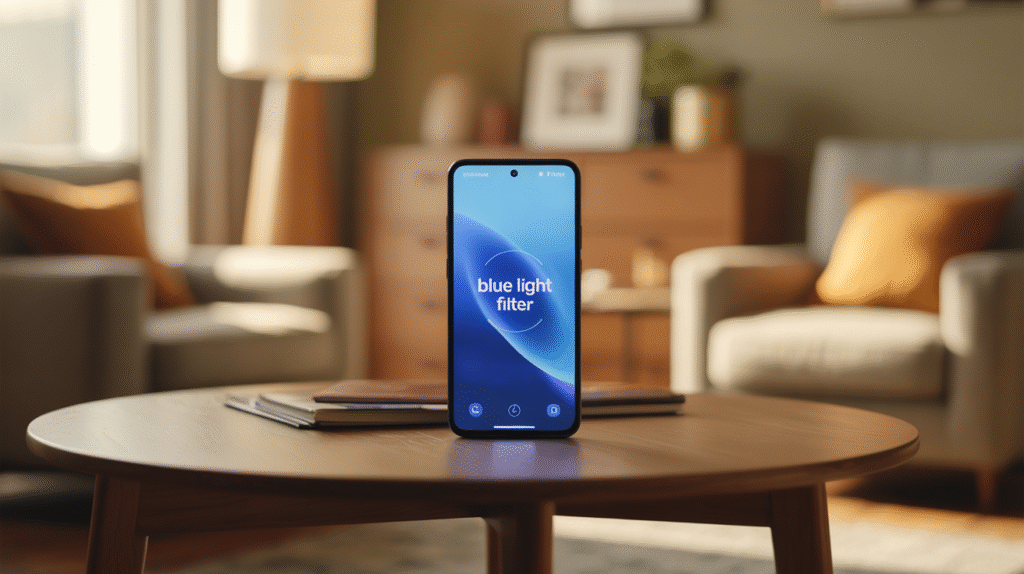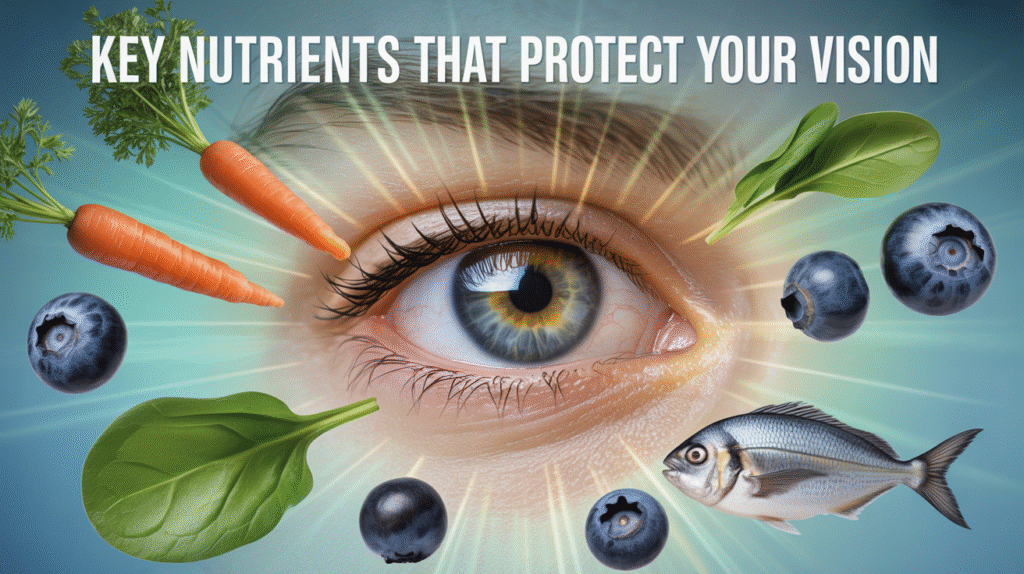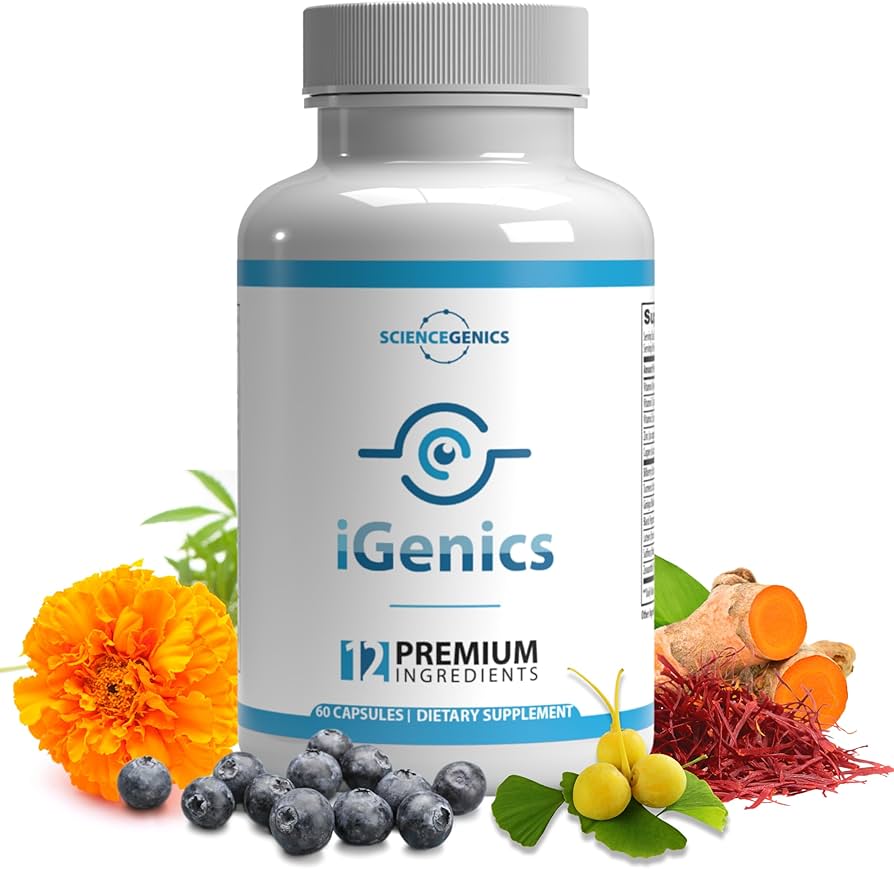In today’s hyperconnected world, most people spend over 7 hours a day in front of screens—whether at work, on smartphones, or during leisure time. But few realize that prolonged exposure to blue light emitted by digital devices may quietly be damaging their eyes.
Blue light is a high-energy, short-wavelength light (between 400 and 500 nm) that penetrates deep into the eye, reaching the retina. While some blue light is naturally present in sunlight and helps regulate circadian rhythms, excessive artificial exposure—especially after sunset—has been linked to visual fatigue, disrupted sleep, and potential long-term damage to eye tissues.
In this article, we explore how blue light affects your vision, where you’re most commonly exposed to it, and how to protect your eyes through natural, science-backed strategies—including nutrition and supplementation.
What Is Blue Light and Where Are You Exposed?
Blue light is everywhere. It’s part of the visible light spectrum, but it carries more energy than other colors. Natural blue light comes from the sun and plays a role in alertness and mood regulation. But the issue arises from prolonged exposure to artificial blue light, primarily from:
-
LED screens (smartphones, tablets, laptops, TVs)
-
Fluorescent and LED lighting in offices and homes
-
Energy-efficient bulbs
At night, this artificial blue light can suppress melatonin, disturbing your sleep cycle and placing stress on your eyes.
How Blue Light Affects the Eyes
Several scientific studies suggest that chronic exposure to high-energy blue light may contribute to:
1. Digital Eye Strain
Also called Computer Vision Syndrome, this condition includes symptoms like:
-
Blurred vision
-
Eye fatigue
-
Dry eyes
-
Headaches
Blue light scatters more than other wavelengths, making it harder for the eye to focus and increasing visual noise.
2. Retinal Stress and Potential Damage
Excessive blue light exposure may increase oxidative stress in the retina, especially in the macula (central part of the retina responsible for sharp vision). Some studies indicate that prolonged exposure can accelerate macular degeneration over time.
3. Disrupted Sleep
Exposure to blue light in the evening suppresses melatonin secretion, making it harder to fall asleep and reducing sleep quality. This, in turn, affects overall eye recovery during rest.

Natural Strategies to Protect Your Eyes from Blue Light
1. Use Built-in Blue Light Filters
Modern smartphones and computers offer “Night Shift” or “Blue Light Reduction” modes that adjust screen tones to warmer colors, especially in the evening. Activating these features reduces eye strain and helps prepare the body for sleep.
2. Follow the 20-20-20 Rule
Every 20 minutes, look at something 20 feet away for at least 20 seconds. This reduces accommodation stress and allows your eye muscles to relax.
3. Optimize Lighting in Your Environment
Avoid harsh overhead lighting and reduce glare. Use lamps with warmer tones or dimmer switches to create a more eye-friendly environment, especially at night.
4. Don’t Rely Solely on Blue Light Glasses
While they may help some individuals with sleep or discomfort, evidence on their effectiveness is mixed. Lifestyle adjustments and proper nutrition offer more reliable protection.

Nutrition for Blue Light Defense: Key Nutrients That Protect Your Vision
Lutein and Zeaxanthin
These carotenoids accumulate in the retina and form the macular pigment. They act as internal filters for blue light and neutralize oxidative stress.
-
A 6-month clinical trial showed that 10mg lutein + 2mg zeaxanthin increased macular pigment density and visual performance.
-
The AREDS2 study also confirmed their protective role in slowing age-related macular degeneration.
Vitamin A
Essential for maintaining the integrity of the cornea and supporting low-light vision.
Zinc
Plays a vital role in transporting vitamin A to the retina and is essential for the function of many antioxidant enzymes.
Bilberry & Ginkgo Biloba Extracts
Rich in anthocyanins and flavonoids, these botanicals improve retinal circulation and reduce inflammation.
Omega-3 Fatty Acids (EPA/DHA)
Support tear production and protect the retina from oxidative stress.
Best food sources:
-
Kale, spinach, corn, red peppers, eggs (for lutein and zeaxanthin)
-
Fish like salmon or sardines (omega-3s)
-
Nuts and seeds (vitamin E and zinc)
-
Blueberries, goji berries, and citrus fruits (antioxidants)
Meet iGenics – A Vision Support Formula Designed for the Digital Age
While diet provides the foundation, it’s often hard to reach therapeutic doses of protective carotenoids daily. That’s where targeted supplements like iGenics come in.
iGenics Highlights:
-
Lutein + Zeaxanthin (clinically backed ratios)
-
Bilberry & Ginkgo for antioxidant and circulatory support
-
Vitamins A, C, E & Zinc to reinforce structural eye health
-
Turmeric & Saffron to calm inflammation and preserve retinal clarity
-
Non-GMO, gluten-free, and manufactured in GMP-certified U.S. facilities
Pricing:
-
1 bottle: $59 + shipping
-
3 bottles: $49 each + bonus guides
-
6 bottles: $39 each + bonus supplement + free shipping
Backed by a 180-day money-back guarantee.
>>Order iGenics today with a 180-day money-back guarantee<<
If you’re looking for complete blue light defense—from screens, poor sleep, and oxidative stress—iGenics offers a clean, effective, and research-aligned solution.
Final Thoughts
Protecting your eyes from blue light is no longer optional—it’s essential. From improving sleep and reducing digital eye strain to preserving long-term visual performance, the steps you take today make a difference.
Start with screen filters, strategic breaks, and a colorful, nutrient-rich diet. And if you want to go further, consider a supplement like iGenics to ensure your eyes are getting the exact nutrients they need to thrive in the digital age.

